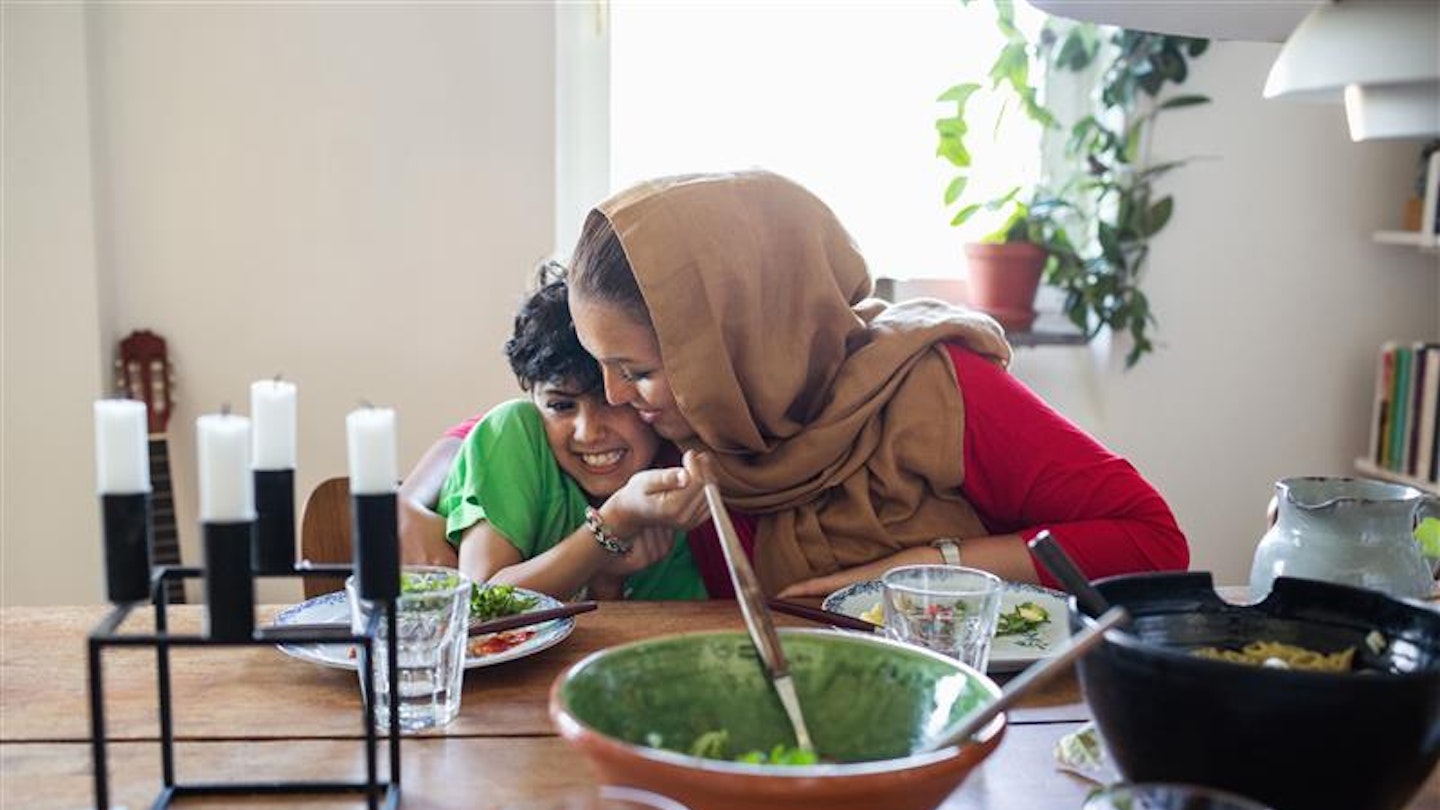Meaningful conversation underpins the capacity to form relationships and there are oodles of data showing these connections protect mental and physical health for a lifetime, so teach your child these skills and you have set them on the best possible life trajectory.
Family life has regular signposts each day: school-pickup, dinner and bedtime. Each is a chance to connect, learn and practice these valuable relationship skills. But how do you make it happen?
As school-pickup
This part of the day is a reunion, and reuniting is important in the world of child development because if you read and respond to your child’s signals sensitively when you meet, your bond is strengthened. As your child emerges from the school gates, look at their expression and body language, which means that before you have even exchanged a word you have invested in your relationship with your child.
Kids need to decompress, because the transition from school to home represents a mental shift and every child does that differently. Some kids need quiet time before they can talk, and so though we know it’s hard to resist pouncing on them as soon as they appear (particularly if they are having a tough time), you must resist.
You are modelling emotional regulation, a key relationship skill: recognising your feeling (anxious to hear the news) but holding off until an appropriate time. Other kids hold it together during school until the moment they see you, and then Bam! Big emotions flow. In the moment, this can be a challenge but take time to consider what it means: you are their safe place where they let go and with that comes the chance to help them make sense of big emotions.
At dinnertime
Eating together regularly as a family is strongly linked to good mental health so make it your priority to protect family mealtimes. Family meals convey the importance of consistency and sharing and are a chance to practice relationship skills.
Remember though everyone round the table will be hungry initially and brains low in blood sugar are more prone to being volatile so make sure everyone has had a few mouthfuls before you tackle big topics. It’s a great chance to model conversation skills too, so try telling a story (novel tales from the past about you or the kid’s younger selves are like catnip). Invite them to tell their own story and use your body language to show your focused attention because that is highly motivating. Parents sometimes forget how utterly intoxicating their attention is, so use that superpower wisely. Not only will their conversation skills develop but regular story-telling practice is linked to improved language and literacy. Everyone’s a winner round that dinner table.
At bedtime
This is often a time when anxious thoughts rear their head. If you have a worrier, you might find endless worries come tumbling out as soon as the PJs are on. These worries are often ‘ruminations’, which is not really a meaningful exchange, it is the verbal equivalent of a merry-go-round; it goes nowhere. As a parent, there is a fine art to managing this scenario: it’s important to share worries but at the same time, big emotions and sleep are not good bedfellows (excuse the pun) so worries should be discussed in the day. Make a worry list and note down key themes then firmly but gently agree a time in the day to talk (make sure you stick to it). This is validating and your child will know for certain you have heard them, which is itself a powerful intervention. If, on the other hand, your child doesn’t typically share worries and unusually raises a concern, it might be time to down tools and listen in that exceptional moment.
We also recommend having a ritual conversation at bedtime as this offers a comforting routine because it is habitual. Try asking your child for three wishes. This is useful because you count down to a finite end, the focus is positive, but it nonetheless illuminates your child’s inner world. These wishes might offer interesting material for family mealtime discussions too.
What if they are having a meltdown?
Of course, each of these family routines offer opportunities and challenges, but what if a challenge becomes an all-out meltdown? Our top tip here is to say very little in the moment but telegraph empathy, and here’s why. The brain only has so much activity to go around and during a meltdown, much of the brain activity is in the brain’s emotional centres, leaving very little for the thinking parts of the brain (the frontal lobes). It means that anything you say during periods of high emotion just can’t be processed meaningfully by your child.
We suggest two steps that will form connections and help settle emotions. First, empathise (‘that sounds hard, tell me more’) and second, name the emotion you see (‘I can see how angry you are about this'). Emotions will settle, they always do, but only then, start to talk.
Jane Gilmour and Bettina Hohnen are clinical psychologists and academics with a specialist interest in neuropsychology. Their new book, How to Have Incredible Conversations With Your Child****, is out now. See their Instagram page @incredibleconversation for more details.
